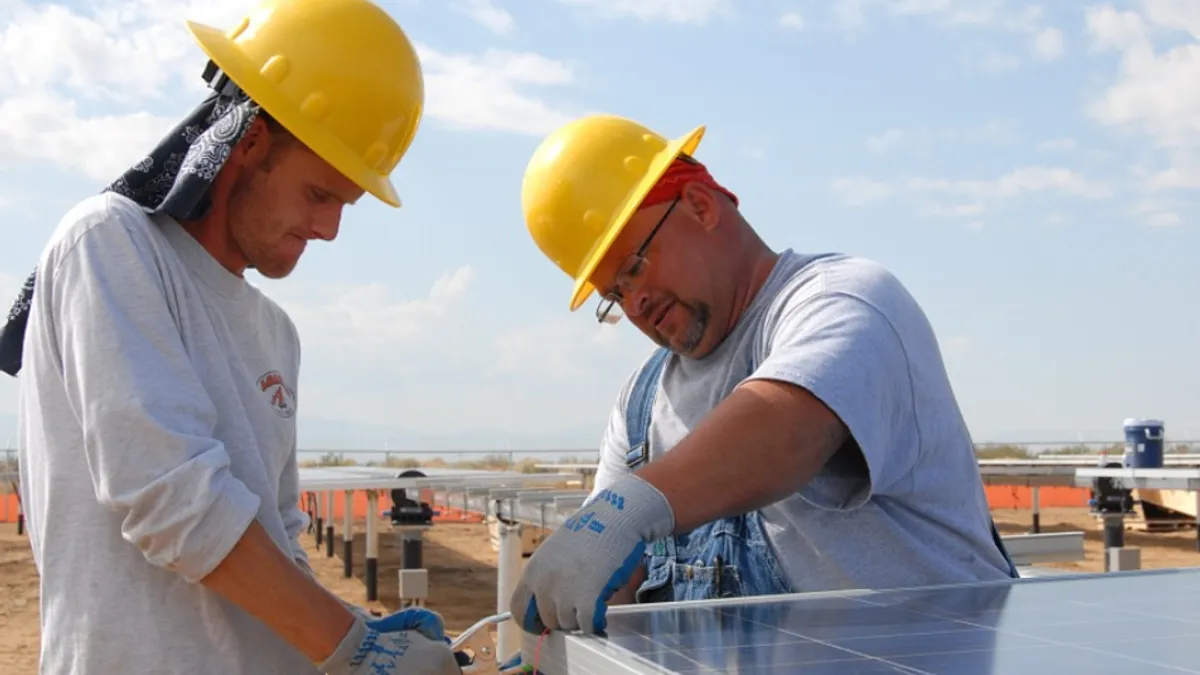Dive Brief:
- A new report from the American Council on the Teaching of Foreign Languages (ACTFL) shows that of all U.S. industries, construction has the largest gap between skilled workers who primarily speak another language and the number of managers who can speak those languages. Forty percent of contractors who responded to survey reported a huge gap in foreign language skills on their jobsites.
- And the gap is expected to widen. The report states that 53% of construction managers surveyed expect an increase in the demand for foreign language skills on the jobsite in the next five years, according to ACTFL executive director Howie Berman.
- The prevalence of foreign languages in construction, especially Spanish, can cause communication-based safety issues and make staffing and undertaking new projects challenging or risky, the report said. Industry experts say, however, foreign language education and time are keys to fixing communication issues that could lead to accidents.
Dive Insight:
Seth Sandler, CEO of Florida-based Superior Skilled Trades, which helps contractors staff projects, said many of his construction firm clients don’t employ non-English speakers because of safety concerns. Communication about a potential jobsite hazard needs to happen in the moment, he said, and a language barrier prevents that quick exchange of information.
An alternative is to to also employ bilingual workers who can provide translation between English-speaking and non-English-speaking workers on sites. “It’s almost a necessity to have bilingual people today in the construction industry,” Sandler told Construction Dive.
After a six-month search, Sandler hired a bilingual recruiter for his company. Now, Spanish-speaking certified welders and electricians can communicate directly with Sandler’s newest recruiter.
“It’s already paying dividends,” Sandler said, just three days after the recruiter started. “It was a real struggle; we probably missed out on a lot of great employees because we couldn’t communicate with them.”
Lance Murray, safety manager at Colorado-based general contractor Mark Young Construction, said the company often hires non-English speakers but construction managers spend a lot of extra time making sure all staff are on the same page in terms of safety procedures. An in-depth orientation process allows Murray and his team to assess the potential success of new non-English-speaking workers before they are sent onsite.
Everything from taking an extra hour to interpret a safety brief into Spanish to ensuring that no one is onsite without at least one other person who speaks Spanish have helped limit communication-related incidents, he said.
Murray added that the company also offers to pay for the Rosetta Stone online language service for workers to learn English. Nevertheless, no English-speaking worker has requested a Spanish-speaking Rosetta Stone course, he said.
Queblo is a software company that works to connect skilled, Spanish-speaking workers with employers. The firm aids workers in building a portfolio to showcase their construction skills and experience. Queblo tries to give workers "leverage," as they often travel for work and need help overcoming the language barrier, said co-founder Igor Fridman.













